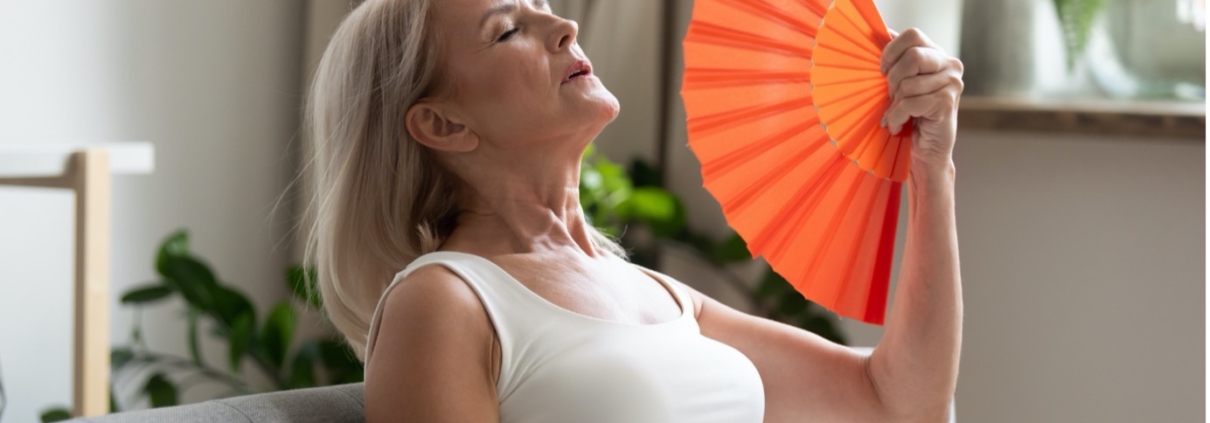Menopause – not just a women’s problem
Davina McCall has made a programme about Menopause and it’s well worth a watch. Women have been increasingly sharing their Menopause experiences in recent years which has helped to break the taboo around this topic. More open discussions about the physical and emotional issues that this transition can bring are fabulous in terms of helping women to feel supported, get access to the right support and bust some of the myths – particularly around Hormone Replacement Therapy (HRT).
But it’s not just about women supporting other women. Or, dare I say it, purely about the impact of the Menopause on women. If a woman suffers badly with Menopause symptoms, it can affect her physical and mental health, her work, her family and, of course, her relationships.
Putting the Men in Menopause
I have been working as an Osteopath for over 20 years. I see all sorts of patients for a variety of issues and my approach is holistic. If you come to me with a sore knee then of course I will treat that. But I’ll also take an extensive patient history including any lifestyle factors that may be affecting your general health.
As a result, patients will often confide in me about their lives and I’m hearing concerns around relationship changes from an increasing number of middle-aged men. And I suspect that many of these can be attributed to their partners going through the Menopause.
But whilst this is now being more widely discussed by women with women, I still feel that there is work to be done on educating men on the changes that their wives, partners and work colleagues may be managing (and not talking about).
Menopause Symptoms – So, what changes?
Each woman will have a different experience of course. The menopause is a natural part of ageing that usually occurs between 45 and 55 years of age, as a woman’s oestrogen levels decline and her periods stop. The average age for the Menopause in the UK is 51 but menopause symptoms can strike long before periods stop (up to 10 years in fact) and this is called peri-menopause. Common symptoms at this time of a woman’s life include:
- hot flushes.
- night sweats.
- vaginal dryness and discomfort during sex.
- difficulty sleeping.
- low mood or anxiety.
- reduced sex drive (libido)
- problems with memory and concentration.
And of course, all this at a time when they are often coping with caring responsibilities (parents and/or children) or other changes such as children leaving home.
How can I support my partner through the menopause?
I wouldn’t presume to suggest what men should do to support the women in their life as everyone is different. But I do have three tips that may be worth consideration:
- Do your research – watch Davina’s programme or find out more about Menopause on the NHS site
- Start a conversation. Ask your wife or partner about the specific symptoms they are dealing with and how you can help.
- Keep the dialogue going. If you feel that your relationship is being impacted then you need to keep talking.
Robin Kiashek has been an Osteopath and Naturopath for over 20 years. He is registered with both The General Osteopathic Council and The British Naturopathic Association. Robin is also qualified in Western Acupuncture, Autogenic Training and Life Coaching and NLP. He has clinics in Central London and Finchley. Call 020 8815 0979 or click here to book an appointment.





Good read. Good article. Thanks for sharing.
Glad you liked. Thanks so much for sharing your comments.